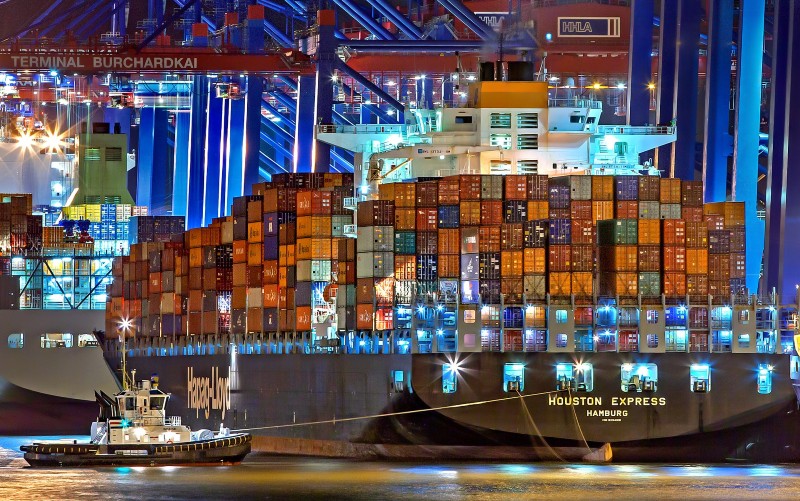The recent outbreak of COVID-19 has exposed critical vulnerabilities in national governments and business operations around the world.
The virus is significantly disrupting supply chains and consumer habits on a global level that will reverberate across every industry in the coming months.
The aftershocks of the crisis could last for years.
While the legal cannabis industry is theoretically recession-resistant in the same way alcohol and pharmaceutical sales have been impervious to historical downturns, cultivators must take necessary measures to safeguard their long-term financial safety.
An Artificial Boost in Consumer Spending
The recent surge in consumer spending has resulted in an artificial sales boost, and dispensaries cannot expect this influx of profits to last.
Cannabis businesses in North America will already be feeling the impact of global supply chain disruptions, the inevitable recession, and low consumer foot traffic as of the end of April.
As a business operator that specializes in procuring and supplying cultivation products across North America, I can say with certainty that cannabis businesses must professionalize their supply chain this year. It’s finally time.
Time for Hard Decisions
In good times when businesses are profitable, many leaders avoid making difficult managerial choices.
Inefficiencies are ignored, technology investments are postponed, and inadequate employees are tolerated.
In bad times, leaders have no choice but to finally address these inefficiencies – with labor costs as the most prominent example.
We are headquartered in California so cycles of market volatility are nothing new, but this outbreak is an unprecedented and seismic disruption.
Supply Shortages
In the coming weeks, cultivators will experience shortages in essential and non-essential supplies – primarily those manufactured in China, including pots, trays, and grow lights.
China has closed several shipping ports and factories to curtail the spread of the virus; it is unclear when these containers of products will reach our shores.
The European economy has also taken a substantial hit in the past weeks, and products that are usually exported from the Netherlands, like grow blocks, will likely be backordered for the foreseeable future.
Accordingly, many cultivators are stockpiling critical supplies such as grow blocks, cubes, soils and fertilizers to lock in pricing before costs rise due to scarcity.
In fact, sales at Hydroponics, Inc. doubled in the first two weeks of the COVID-19 shutdown. Our cultivators were spending more per purchase, but ordering less frequently, mirroring purchasing patterns from the consumer market.
While I believe the cannabis industry will survive the crisis relative to other industries – largely due to its medical applications and status as an essential business, this period will create industry-wide changes that will forever alter the cultivation and supplier landscape in North America.
A Global Recession on the Horizon
Reports from leading financial institutions show that we are heading into a global recession and that over half of the country’s small businesses will be unable to continue operating in the next three months without significant governmental assistance.
Just this week, over six million people filed for unemployment. In the cannabis world, this means smaller suppliers and retailers, who operate on razor-thin margins by competing exclusively on price, will not survive.
Shipping and freight costs will increase in the coming months and raise operating costs to an unsustainable level for many businesses.
For example, a one-way transpacific charter freighter can now cost $1 million compared to $250,000 before the pandemic — that’s a 400 percent increase! Ultimately, this decrease in competition will increase operational and consumer costs.
Assessing Supply Expenses
The legal cannabis market has weathered several storms in the past and will rise to the challenge again. Cultivators must take a hard look at their finances.
This means managers should examine their business expenses line-by-line and update forecasting for the inevitable downturn.
Companies should evaluate if hiring freezes or reductions in staff are necessary and consider delaying investments that will not generate immediate ROI.
It is crucial for all businesses to focus on cash management, liquidity, and cost of goods sold (COGS).
Utilizing a centralized procurement partner will optimize supply costs and minimize opportunity costs in an increasingly stressful financial environment.
Focus On What You Do Best
On average, a commercial cultivator uses 38 vendors per facility per month. To do this in-house is inefficient, costly, and in stark contrast to hundreds of years of comparative advantage analysis.
Large suppliers have the management team and balance sheet to anticipate potential shortages and stockpile extra cycles of supplies.
Now is not the time for cultivators to try their hand at spending their limited resources on developing an in-house procurement system or start tinkering with logistics and shipping – an incredibly tedious and expensive initiative.
In order to stay afloat in these difficult circumstances, businesses must focus on their core competencies, like branding and cultivation, and running their company efficiently.
This pandemic has highlighted the strongest and weakest aspects of our industry.
It has shown the social and medical significance of cannabis, which was vilified by policymakers not too long ago.
It has also exposed how dependent the supply chain is on overseas producers and the global economy.
While this period of uncertainty is temporary, the supply chain decisions that cultivators make now can have lasting impacts on the structure of the industry for decades to come.






